Cancer Isn’t Random
Cancer Isn’t Random
Despite the study in one of the world’s most prestigious scientific journals, and the high-profile media coverage of it: no, cancer is absolutely NOT mostly random and a product of “bad luck.” It wasn’t true when these same investigators published very similar work generating very similar media coverage two years ago, and it isn’t true now.
The evidence we have that cancer is often, even routinely preventable by choices we can make singly (i.e., lifestyle), or collectively (i.e., policy, and the social/environmental determinants of health), is nothing short of incontrovertible. We have clear data linking a number of modifiable exposures, tobacco salient among them, to cancer incidence. We observe enormous variations in cancer rates, both in general and of specific types, among different populations around the world. We even observe an enormous change in cancer rates when the same population, with the same genes, changes its environment and lifestyle.
Now, as two years ago, the researchers at Johns Hopkins examined the correlation between a type of mutation, called replication error, and the incidence of cancer by tissue type. The principal difference between this study and the prior was that they looked only at the U.S. population last time, and this time, the sample was global.
This entire line of research basically indicates that when cells divide and DNA is replicated, copy errors occur. We knew that. It also indicates that the frequency of those errors correlates with the frequency of cell division. We knew that as well, and it’s why tumors of the brain and heart are very rare, while tumors of the skin, gastrointestinal tract, and reproductive organs are common. The latter are tissues with high rates of cell division, and into the bargain, large surfaces exposed to potential toxins from without or within.
But there can be a high correlation between mutations and cancer in a given tissue, and yet be massive variation in the absolute frequency of both in tandem with environmental factors and lifestyle practices. So, for instance, there could be a “random” mutation associated with breast cancer 75% of the time in both the U.S., and Japan- but the rate of breast cancer in Japanese women could be only half that of American women. Historically, in fact, that has been the case– although sadly, the rate of breast cancer is rising in Japan with globalization and the subordination of traditional, cultural practices to bacon-cheese burgers, fries, and Coca-Cola for all.
A mutation is not a clinical cancer; not by a long shot. We are all subject to mutations all the time. The tissues that divide most often, and produce the most mutations, are also apt to renew themselves routinely. We slough, and replace, our inner and outer linings- skin, and intestinal epithelium- at a very high rate. Many of the mutations that occur there may be jettisoned accordingly.
When mutations occur in cells not carted out with the trash, the body may nonetheless dispatch them effectively. Among the many crucial functions of the immune system is “immunosurveillance,” prowling the body for rogue cells. The very lifestyle and environmental factors associated with low rates of cancer- avoiding toxins like tobacco, eating well, being active, etc.- foster the efficiency of immunosurveillance; converse exposures conspire against it, offering mutated cells an exploitable opportunity.
We might say, I suppose, that ships sink randomly because ships tend to sink in storms at sea, and storms at sea are not under our control. The analogy with cancer is fairly robust. Storms at sea are random to a degree, but we also know where, and in what season, they are most common. Similarly, we know about social, environmental, and lifestyle factors that favor mutation, and impair immunosurveillance. More importantly, although any ship is more likely to sink in a storm than in fine weather, the likelihood of shipwreck varies, of course, with the competency of captain and crew, and the seaworthiness of the vessel.
Mutations are the storms; the human body is the vessel; and we are captains, all. Cancer is, to be sure, a constant threat- like storms at sea. But it is generally no more random than the risk of shipwreck.
For scientists to be heard above the constant cyberspatial din of modern life, there is some insidious pressure to push the implications of research findings as far as the proverbial envelope will bear. For the media to garner attention above the same background static and in ever tighter news cycles, there is rather overt incentive for hyperbolic and even willfully absurd headlines. Since this appears to be rule rather than exception where science and media collide, there is nothing random about it.
In this case, since much the same research generated much the same misrepresentations two years ago- we may reasonably consider the entire episode a replication error.
-fin Dr. David L. Katz;www.davidkatzmd.com; founder, True Health Initiative

